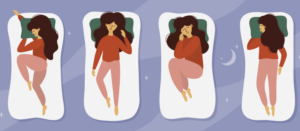In a fast-paced world where stress and anxiety often run high, sleep disorders have become increasingly prevalent. Consequently, many individuals turn to sleeping pills for relief. While these medications can provide short-term help, there’s a darker side to their prolonged usage: addiction. In this blog, we delve into the intricacies of sleeping pill addiction, exploring its causes, signs, consequences, and potential avenues for recovery.
Contents
Why Do People Use Sleeping Pills?

People use sleeping pills for various reasons, often related to difficulties in falling asleep or staying asleep. Here are some common reasons why people turn to sleeping pills:
- Insomnia: Persistent difficulty falling asleep or staying asleep is a common reason why people seek out sleeping pills. Insomnia can be caused by stress, anxiety, depression, or disruptions in the sleep-wake cycle due to shift work or jet lag. Sleeping pills offer a short-term solution to help individuals get the rest they need.
- Temporary Sleep Disturbances: Certain life events or situations can disrupt sleep temporarily, such as travel, illness, or changes in the environment. Sleeping pills may be used on a short-term basis to address these transient sleep disturbances and restore normal sleep patterns.
- Chronic Sleep Disorders: Some individuals suffer from chronic sleep disorders like sleep apnea, restless legs syndrome, or narcolepsy, which can significantly impair the quality of sleep. While sleeping pills may not directly treat these conditions, they may be prescribed alongside other treatments to manage symptoms and improve sleep quality.
- Anxiety and Stress: Excessive worry, stress, or anxiety can interfere with the ability to relax and fall asleep. In such cases, sleeping pills with sedative properties may be used to calm the mind and promote relaxation, facilitating the onset of sleep.
- Chronic Pain: Pain from conditions like arthritis, fibromyalgia, or injury can make it difficult to get comfortable and fall asleep. Some sleeping pills have muscle relaxant properties that can help alleviate pain and promote sleep in individuals dealing with chronic pain conditions.
- Shift Work and Jet Lag: People who work irregular hours or frequently travel across time zones may struggle to adjust their sleep schedules. Sleeping pills can help regulate sleep patterns and improve the quality and duration of sleep in individuals dealing with shift work disorder or jet lag.
- Desire for Quick Relief: In today’s fast-paced world, many individuals seek quick fixes for their problems, including sleep disturbances. Sleeping pills offer the allure of immediate relief, allowing people to bypass the time and effort required for implementing long-term lifestyle changes or behavioral interventions for better sleep.
- Prescription from Healthcare Providers: Healthcare providers may prescribe sleeping pills as part of a comprehensive treatment plan for sleep disorders or related conditions. When used under medical supervision and for short durations, sleeping pills can be effective in managing sleep disturbances and improving overall well-being.
Signs of Sleeping Pill Addiction
Recognizing the signs of sleeping pill addiction is crucial for identifying problematic usage and seeking appropriate intervention. Here are some common signs that may indicate a person is struggling with sleeping pill addiction:
- Increased Tolerance: Over time, individuals may find that they need higher doses of sleeping pills to achieve the same desired effect. This tolerance develops as the body adapts to the presence of the medication, requiring larger amounts to produce the desired sedative effect.
- Dependency on Medication: People with sleeping pill addiction may feel unable to sleep without taking the medication. They may believe that they cannot function or fall asleep naturally without the aid of sleeping pills, leading to psychological dependency on the medication.
- Withdrawal Symptoms: When attempting to reduce or stop the use of sleeping pills, individuals may experience withdrawal symptoms. These symptoms can include rebound insomnia (worsening of sleep problems), anxiety, irritability, tremors, sweating, nausea, headaches, and even seizures in severe cases.
- Preoccupation with Medication: Individuals may spend a significant amount of time thinking about obtaining, using, or recovering from the effects of sleeping pills. This preoccupation can interfere with daily activities, relationships, and responsibilities.
- Using Medication Despite Negative Consequences: Despite experiencing negative consequences associated with sleeping pill use, such as impaired memory, drowsiness during the day, relationship problems, or difficulties at work or school, individuals continue to use the medication.
- Doctor Shopping or Obtaining Pills Illegally: Some individuals with sleeping pill addiction may engage in doctor shopping, visiting multiple healthcare providers to obtain prescriptions for sleeping pills. Others may obtain pills illegally through friends, family members, or online sources.
- Changes in Behavior and Mood: Sleeping pill addiction can lead to changes in behavior and mood. Individuals may become secretive about their medication use, exhibit mood swings, become defensive when questioned about their usage, or display erratic behavior.
- Neglecting Responsibilities: As sleeping pill addiction progresses, individuals may neglect their responsibilities at work, school, or home. They may miss deadlines, perform poorly on tasks, or withdraw from social activities and relationships.
- Craving and Obsessive Thoughts: People with sleeping pill addiction may experience intense cravings for the medication and obsessively think about when they can take their next dose. These cravings can contribute to the cycle of addiction and make it challenging to quit using sleeping pills.
- Physical Health Issues: Prolonged use of sleeping pills can lead to various physical health issues, including respiratory depression, dizziness, confusion, memory problems, gastrointestinal issues, and an increased risk of falls and accidents.
Consequences of Sleeping Pill Addiction

Sleeping pill addiction can have profound consequences on various aspects of an individual’s life, affecting their physical health, mental well-being, relationships, and overall quality of life. Here are some common consequences of sleeping pill addiction:
- Physical Health Risks: Prolonged use of sleeping pills can lead to a range of physical health issues, including:
- Respiratory Depression: Sleeping pills, especially those belonging to the benzodiazepine class, can suppress respiratory function, leading to shallow breathing or even respiratory failure, particularly when taken in high doses or combined with other central nervous system depressants like alcohol.
- Memory Impairment and Cognitive Dysfunction: Chronic use of sleeping pills has been associated with cognitive impairment, including deficits in memory, attention, and concentration. This can impact an individual’s ability to perform daily tasks, work, and engage in meaningful activities.
- Increased Risk of Falls and Accidents: Sedative effects of sleeping pills can cause dizziness, impaired coordination, and balance problems, increasing the risk of falls and accidents, particularly in older adults.
- Gastrointestinal Issues: Sleeping pills may cause gastrointestinal side effects such as nausea, vomiting, constipation, or diarrhea, which can further impact an individual’s well-being and quality of life.
- Psychological Effects: Sleeping pill addiction can also have significant psychological consequences, including:
- Dependence and Withdrawal: Individuals may develop a psychological dependence on sleeping pills, feeling unable to function or sleep without them. Attempting to reduce or stop medication may lead to withdrawal symptoms such as rebound insomnia, anxiety, agitation, irritability, and mood swings.
- Mental Health Disorders: Long-term use of sleeping pills has been associated with an increased risk of developing mental health disorders such as depression, anxiety, and substance-induced mood disorders.
- Cognitive Impairment: Chronic use of sleeping pills, particularly in older adults, has been linked to cognitive impairment, confusion, and memory problems, which can significantly impact daily functioning and quality of life.
- Social and Interpersonal Problems: Addiction to sleeping pills can strain relationships with family, friends, and colleagues, leading to social isolation, withdrawal, and conflict. Individuals may prioritize obtaining and using medication over spending time with loved ones or participating in social activities.
- Financial Burden: The cost of obtaining prescription medications or seeking treatment for sleeping pill addiction can place a significant financial strain on individuals and their families. Additionally, addiction-related expenses such as doctor visits, hospitalizations, or legal fees can further exacerbate financial difficulties.
- Legal Issues: Misuse of prescription medications, such as obtaining them without a prescription or driving under the influence, can result in legal consequences, including fines, license suspension, or legal charges. In severe cases, individuals may face criminal penalties or incarceration.
- Impact on Work and Academic Performance: Addiction to sleeping pills can impair cognitive function, concentration, and productivity, leading to difficulties at work or school. Individuals may struggle to meet deadlines, perform effectively, or maintain employment or academic standing.
- Healthcare System Strain: Sleeping pill addiction places a burden on the healthcare system, with increased healthcare utilization for addiction treatment, emergency department visits, hospitalizations, and medical complications associated with substance abuse.
Treatment and Recovery
Recovering from sleeping pill addiction often requires professional intervention and support. Treatment options may include:
- Medical Detoxification: Gradually tapering off sleeping pill usage under medical supervision to minimize withdrawal symptoms and safely manage detoxification.
- Therapy: Participating in individual or group therapy sessions to address underlying psychological issues contributing to addiction and learn coping strategies for managing stress and improving sleep hygiene.
- Support Groups: Engaging with support groups such as Narcotics Anonymous (NA) or online forums where individuals with similar experiences can share insights, encouragement, and advice.
- Lifestyle Changes: Adopting healthier sleep habits, such as establishing a consistent sleep schedule, creating a relaxing bedtime routine, and avoiding caffeine and electronics before bed.
Tips To Manage Sleeping Pill Addiction

Managing sleeping pill addiction can be challenging, but with dedication, support, and appropriate strategies, recovery is possible. Here are some tips to help manage sleeping pill addiction:
- Gradual Tapering: If you’ve been using sleeping pills regularly, abruptly stopping can lead to severe withdrawal symptoms. A healthcare provider can create a tapering schedule to gradually reduce your dosage over time, minimizing withdrawal symptoms and increasing the likelihood of successful cessation.
- Establish Healthy Sleep Habits: Focus on improving your sleep hygiene by establishing a consistent sleep schedule, creating a relaxing bedtime routine, and optimizing your sleep environment (e.g., comfortable mattress, dark and quiet room). Avoid caffeine, nicotine, and electronic devices before bedtime, as they can disrupt sleep.
- Practice Stress Management Techniques: Learn and practice stress-reduction techniques such as deep breathing, meditation, mindfulness, progressive muscle relaxation, or yoga. These techniques can help you manage anxiety, stress, and racing thoughts that may contribute to sleep difficulties and addiction.
- Engage in Regular Exercise: Regular physical activity can improve sleep quality, reduce stress and anxiety, and promote overall well-being. Aim for at least 30 minutes of moderate-intensity exercise most days of the week, but avoid vigorous exercise close to bedtime, as it may interfere with sleep.
- Develop Healthy Coping Mechanisms: Identify healthier ways to cope with stress, boredom, or negative emotions instead of turning to sleeping pills. Engage in activities you enjoy, spend time with supportive friends or family members, pursue hobbies, or volunteer in your community.
- Nutrition and Hydration: Maintain a balanced diet rich in fruits, vegetables, whole grains, and lean proteins, and stay hydrated by drinking plenty of water throughout the day. Avoid heavy meals, caffeine, and alcohol close to bedtime, as they can disrupt sleep.
Conclusion
Sleeping pill addiction is a multifaceted issue with significant physical, psychological, and social implications. While these medications can offer temporary relief from sleep disturbances, their misuse, and over-reliance can lead to addiction and associated problems. Recognizing the signs of sleeping pill addiction and seeking timely intervention is crucial for promoting recovery and restoring overall well-being. Remember, there is hope and support available for those struggling with sleeping pill addiction.
